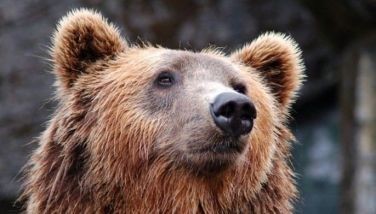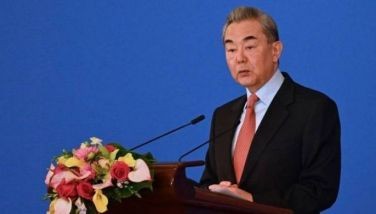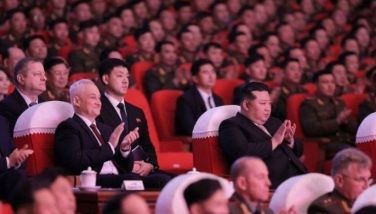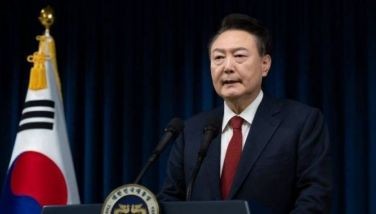AstraZeneca US trials thrown into doubt after promising data
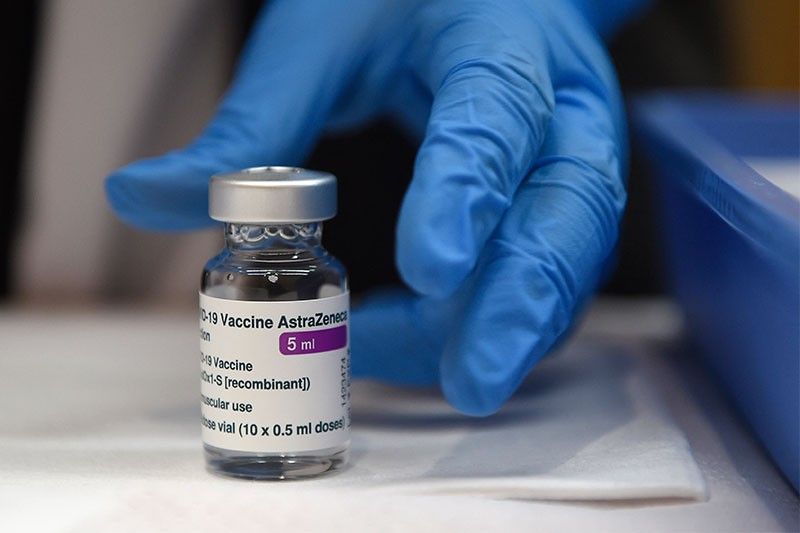
WASHINGTON, United States — A US health agency raised concerns Tuesday that AstraZeneca may have included out-of-date information during trials of its Covid-19 vaccine, a day after the company said its drug was highly effective in preventing the disease.
The Anglo-Swedish pharma giant stood by its assessment of the results of its US trials, saying it would publish new data "within 48 hours" in response to concerns raised by the US National Institute for Allergies and Infectious Diseases.
In more bad publicity for AstraZeneca, French authorities said they are investigating the death of a 26-year-old medical student days after he received their Covid-19 vaccine, while stressing that no link had been established yet with the jab.
The fresh problems for the drugmaker, which had on Monday hailed its vaccine as 79 percent effective at preventing Covid-19, come as Europe continues to wrangle over shortages of the jab and after weeks of safety concerns.
With AstraZeneca delivering only 30 percent of the doses it promised the EU for the first quarter, Germany threw its weight behind a ban on European exports of the jab, while also announcing strict virus measures over Easter to contain spiralling infections.
The European Commission will on Wednesday adopt "a revision of the export transparency and authorisation mechanism," a spokesman in Brussels told journalists.
Meanwhile, Britain marked the anniversary of its first coronavirus lockdown by holding a minute's silence for the more than 126,000 of its citizens who have died from Covid-19, the fifth-highest death toll in the world.
The global death toll now stands at more than 2.7 million.
Putin gets jabbed
Russian President Vladimir Putin on Tuesday received his first dose of a coronavirus vaccine, his spokesman said as Russia looks to boost a vaccination campaign that is faltering despite having produced three home-grown jabs.
Putin thus joined other world leaders who have received jabs including US President Joe Biden, Pope Francis and Britain's Queen Elizabeth.
But unlike many others who were vaccinated in public, Putin's vaccination took place in private and Kremlin spokesman Dmitry Peskov did not specify which jab was administered.
AstraZeneca's vaccine had been hailed as a potential game-changer in the fight against the pandemic as it is cheaper and easier to store and transport than many of its rivals, making it more accessible for poorer nations.
But public confidence in the drug has tumbled after more than a dozen countries temporarily suspended its rollout because of isolated cases of blood clots in people who had received a dose.
The EU's medicines regulator and the World Health Organization insist there is no evidence linking the vaccine to blood clots.
Scant supplies of AstraZeneca doses in Europe have meanwhile hampered the continent's vaccine rollouts, which lag far behind countries like the UK and Israel.
French President Emmanuel Macron said Tuesday that his country should be giving vaccines "morning, noon and evening", as his government announced that 35 new mass inoculation centres would open soon.
"We're going to change pace from April," he said, adding that there should be "no weekend and days off when it comes to vaccinations".
'Much deadlier'
In Germany, Merkel ordered a nationwide shutdown for five days between April 1 and April 5 as Christians celebrate Easter, with almost all shops closed and religious services moved online.
A variant first identified in Britain has become the dominant strain circulating in Germany, she said, adding: "We are in a new pandemic."
"Essentially, we have a new virus... it is much deadlier, much more infectious and infectious for much longer."
The Netherlands announced it is extending its coronavirus restrictions until April 20 as cases are rising.
Ukraine said it too was battling a new wave of infections as it reported the highest death toll since the beginning of the crisis, with 300 fatalities in the past 24 hours.
And in Slovakia, liberal President Zuzana Caputova demanded the resignation of centrist Premier Igor Matovic as the country struggles with one of the world's highest Covid-19 death rates.
Banksy fundraiser
In tribute to its Covid dead, Britain held a "National Day of Reflection" on Tuesday, with parliament holding a minute's silence and bells ringing out across the country.
The country's state-run National Health Service (NHS) has been under huge strain, and on Tuesday a painting by UK street artist Banksy sold for a record £16.75 million ($23.1 million, 19.4 million euros) in an auction by Christie's to raise money for health workers.
The artist left a note with the piece thanking hospital staff for their work battling the pandemic.
"Thanks for all you're doing. I hope this brightens up the place a bit, even if it's only in black and white," he wrote.
Pharma giants Sanofi and GSK said on July 29, 2020, that they have agreed to supply Britain with up to 60 million doses of a potential COVID-19 vaccine. The agreement covers a vaccine candidate developed by France's Sanofi in partnership with the UK's GSK and is subject to a "final contract."
This thread collects some of the major developments in the search for a vaccine to ease the new coronavirus pandemic. (Main photo by AFP/Joel Saget)
As negotiations towards a new pandemic treaty pick up pace, observers warn of watered-down efforts to ensure equitable access to the medical products needed to battle future Covid-like threats.
Shaken by the pandemic, the World Health Organization's 194 member states are negotiating an international accord aimed at ensuring countries are better equipped to deal with the next catastrophe, or even prevent it altogether.
The process is still in the early stages, with the aim of reaching an agreement by May 2024.
But critics warn that revisions being made to the preliminary negotiating text are weakening the language -- notably in a key area aimed at preventing the rampant inequity seen in access to vaccines and other medical products during the Covid pandemic.
"I think it is a real step backwards," Suerie Moon, co-director of the Global Health Centre at the Geneva Graduate Institute, told AFP. — AFP
Africa's first mRNA vaccine hub is ceremonially launched on Thursday to acclaim from the UN's global health chief, who hailed it as a historic shift to help poor countries gain access to life-saving jabs.
The facility was set up in the South African city of Cape Town in 2021 on the back of the success of revolutionary anti-Covid vaccines introduced by Pfizer/BioNTech and Moderna.
"This precious project... will bring a paradigm shift in addressing the serious problem we faced, the equity problem, during the pandemic, so (that) it's not repeated again," World Health Organization (WHO) head Tedros Adhanom Ghebreyesus tells a media briefing to mark the inauguration. — AFP
China has approved its first locally developed messenger RNA (mRNA) vaccine against Covid-19, its manufacturer said Wednesday, months after the relaxation of strict Covid-zero regulations sparked a surge in cases.
The vaccine, developed by CSPC Pharmaceutical Group Ltd, has been approved for "emergency use" by Beijing's health regulator, the company said in a statement.
It showed high efficacy in a trial in which it was used as a booster shot for people who have been given other types of vaccines, the company added, without offering further details. — AFP
COVID-19 vaccine maker Novavax raises doubts about its ability to continue its business, announcing plans to cut spending after struggles in rolling out its coronavirus jab.
Shares of Novavax plummeted 25 percent in extended trading, after the company reported fourth-quarter earnings that missed analyst estimates.
While the firm should have enough money to fund operations, the situation is "subject to significant uncertainty," it says in a statement. — AFP
The protection against Covid-19 from being previously infected lasts at least as long as that offered by vaccination, one of the largest studies conducted on the subject says.
Ten months after getting Covid, people still had an 88% lower risk of reinfection, hospitalisation and death, according to the study published in the Lancet journal.
That makes this natural immunity "at least as durable, if not more so" than two doses of Pfizer or Moderna's vaccines, the study says.
The authors nevertheless emphasized that their findings should not discourage vaccination, which remains the safest way to get immunity. — AFP
- Latest
- Trending

















